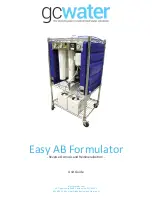
47
14. FAQs - Frequently Asked Questions
14. FAQs - Frequently Asked Questions
14.1 The Piping System
What type of pipe material does Vulcan treat?
Vulcan is suitable for all pipe materials: iron, galvanized iron, inox,
copper, steel, stainless steel, plastic, PVC, PE-X, compound pipes (any
material mixture) etc.
Do plastic pipes and copper pipes need scale protection at all?
Yes. Plastic and copper pipes are prone to calcifications, too. The
smoother a surface is the longer it can resist the process of calcification.
It may take longer until plastic or copper get a first layer of scale.
However, once that first layer has built up, the scaling process proceeds
just as fast as on any other surface or material.
How long does it take Vulcan to sanitize the pipes?
Vulcan gently removes scale and rust without negatively affecting the
pipes. The treatment works within the laws of nature. Therefore, the
removal process may take as long as it took the deposits to develop.
Will the scale that is cleaned out block the pipes?
No, the scale is slowly dissolved back into a solution and the calcium and
magnesium is washed away in the water as a fine powder.
How long does the effect last?
When mono-crystals are created by the impulse variation, it is important
that they grow as long as possible before they start their way through
the piping system. The larger the crystals, the longer it takes until the
crystals fall apart again and eventually "die". In warm water, these
crystals grow faster and therefore are stronger and live longer. This
explains why the Vulcan-effect lasts the longest in warm water (up to
seven days) and shorter in cold water (approx. two days).
The copper pipes have turned green. Does Vulcan help with
this problem?
Green colored copper pipes are an indication to oxidized
copper or copper rust - similar to rust in iron pipes. The Vulcan treatment
produces hydrogen dioxide (H
2
O
2
) which protects blank copper surfaces
against oxidation. This way, Vulcan reduces the green colorization of
the water.








































